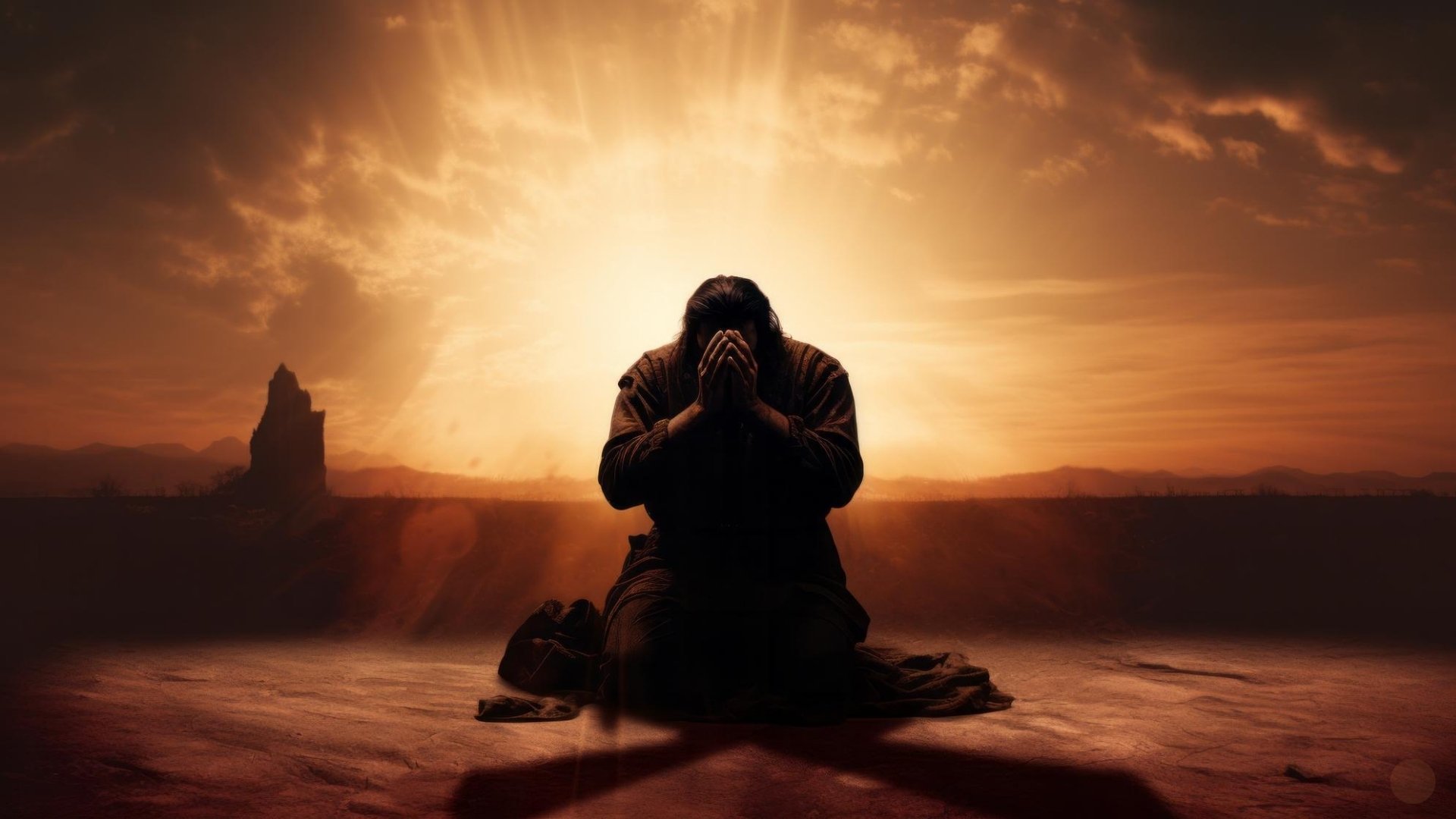The LoDebar Experience
The LoDebar Experience is a powerful metaphor for seasons of barrenness, isolation, and hopelessness. In the Bible, LoDebar is a place of desolation and obscurity, often associated with lack and despair. However, the story of Mephibosheth in 2 Samuel 9 reveals how God’s grace can transform a LoDebar experience into a testimony of restoration and honor.
What is LoDebar?
The name LoDebar in Hebrew means “no pasture” or “no word.” It signifies a place of barrenness, desolation, and neglect. It is mentioned in the story of Mephibosheth, the grandson of King Saul and son of Jonathan. After the death of his father and grandfather, Mephibosheth lived in LoDebar, a forgotten town far removed from the royal palace and the privileges he was born into.
Mephibosheth’s Journey to LoDebar
Mephibosheth’s journey to LoDebar began with tragedy. In the chaos following Saul and Jonathan’s deaths, Mephibosheth’s nurse fled with him, and he fell, becoming crippled in both feet (2 Samuel 4:4). From a place of honor and promise, he was thrust into a life of obscurity and dependence.
LoDebar became his refuge—a place to hide from the political upheaval of Israel. However, it was also a place of forgotten dreams and shattered hopes. Mephibosheth’s story mirrors the human experience of finding oneself in a “LoDebar” season—where life feels empty, and hope seems distant.
The King’s Invitation
The turning point in Mephibosheth’s story comes when King David remembers his covenant with Jonathan. 2 Samuel 9:1 records David’s question: “Is there anyone still left of the house of Saul to whom I can show kindness for Jonathan’s sake?”
When David learns of Mephibosheth’s existence, he sends for him from LoDebar. Mephibosheth, likely filled with fear and uncertainty, is brought to the king’s palace. Instead of condemnation, David offers kindness, restoring Saul’s land to Mephibosheth and inviting him to eat at the king’s table continually (2 Samuel 9:7).
The Spiritual Meaning of the LoDebar Experience
The LoDebar Experience symbolizes the seasons in life when we feel abandoned, unworthy, or far from God’s blessings. Like Mephibosheth, we may find ourselves in a spiritual LoDebar due to past failures, circumstances beyond our control, or feelings of inadequacy.
Yet, the story of Mephibosheth reminds us that God does not forget His promises. In His time, He calls us out of LoDebar, not because of our worthiness but because of His covenant of grace. Isaiah 43:1 declares, “Do not fear, for I have redeemed you; I have summoned you by name; you are mine.”
Lessons from the LoDebar Experience
-
God’s Grace Transcends Our Brokenness
Mephibosheth’s physical disability did not disqualify him from the king’s favor. Similarly, our weaknesses and failures do not limit God’s ability to restore and elevate us. 2 Corinthians 12:9 reminds us, “My grace is sufficient for you, for my power is made perfect in weakness.” -
God’s Timing is Perfect
Mephibosheth lived in LoDebar for years before David summoned him. Though it may feel like we are forgotten, God’s plans are unfolding in His perfect time. Ecclesiastes 3:11 assures us that “He has made everything beautiful in its time.” -
Restoration is Part of God’s Plan
David’s act of restoring Saul’s land to Mephibosheth symbolizes God’s ability to redeem what was lost. Joel 2:25 promises, “I will repay you for the years the locusts have eaten.” -
We Are Invited to the King’s Table
Mephibosheth’s place at David’s table is a picture of the grace believers receive through Christ. Despite our unworthiness, we are invited to dine with the King of kings. Ephesians 2:6 says, “And God raised us up with Christ and seated us with him in the heavenly realms in Christ Jesus.”
Overcoming Your LoDebar Experience
If you find yourself in a LoDebar season, take heart. God sees you, knows your struggles, and has a plan to bring you out of desolation into abundance. Psalm 34:18 assures us, “The Lord is close to the brokenhearted and saves those who are crushed in spirit.”
Stay connected to God through prayer, worship, and His Word. Trust in His promises, knowing that He is faithful to fulfill them. Your LoDebar is not the end; it is a stepping stone to a greater purpose.
Conclusion: The LoDebar Experience
The LoDebar Experience teaches us that no matter how far we feel from God’s blessings, His grace can reach us. Like Mephibosheth, we may feel unworthy and forgotten, but God calls us by name and invites us into His presence.
Through the story of LoDebar, we are reminded of the transformative power of God’s love and the assurance that His plans for us are good. Let us hold onto His promises, knowing that our journey through LoDebar will lead to restoration, honor, and a seat at the King’s table.
Psalm 23:5 beautifully captures this truth: “You prepare a table before me in the presence of my enemies. You anoint my head with oil; my cup overflows.” Truly, the LoDebar Experience is not the end but the beginning of a testimony of God’s faithfulness and grace.
The LoDebar Experience represents a season of barrenness, desolation, or feeling forgotten. However, God’s Word reminds us that He is a God of restoration, hope, and new beginnings. These 30 Bible verses affirm His faithfulness to lift us from places of despair and lead us into His abundance. As you meditate on these scriptures, trust in God’s promises to restore, renew, and transform every area of your life. He has not forgotten you, and His grace is more than sufficient to bring you into His divine purpose.
Verses on Restoration and Deliverance
-
Joel 2:25 – “I will repay you for the years the locusts have eaten.”
-
Jeremiah 30:17 – “For I will restore health to you, and your wounds I will heal, declares the Lord.”
-
Isaiah 43:19 – “See, I am doing a new thing! Now it springs up; do you not perceive it?”
-
Psalm 71:20-21 – “Though you have made me see troubles, many and bitter, you will restore my life again.”
-
Hosea 6:1 – “Come, let us return to the Lord. He has torn us to pieces but he will heal us.”
Verses on God’s Grace and Love
-
Ephesians 2:8-9 – “For it is by grace you have been saved, through faith.”
-
Romans 8:1 – “There is therefore now no condemnation for those who are in Christ Jesus.”
-
2 Corinthians 12:9 – “My grace is sufficient for you, for my power is made perfect in weakness.”
-
John 1:16 – “Out of his fullness we have all received grace in place of grace already given.”
-
Lamentations 3:22-23 – “Because of the Lord’s great love we are not consumed, for his compassions never fail.”
Verses on Hope and Encouragement
-
Jeremiah 29:11 – “For I know the plans I have for you, declares the Lord.”
-
Isaiah 40:31 – “But those who hope in the Lord will renew their strength.”
-
Psalm 27:13-14 – “Wait for the Lord; be strong and take heart.”
-
Romans 15:13 – “May the God of hope fill you with all joy and peace as you trust in him.”
-
2 Corinthians 4:16-18 – “Though outwardly we are wasting away, yet inwardly we are being renewed day by day.”
Verses on God’s Faithfulness
-
Deuteronomy 31:6 – “Be strong and courageous. Do not be afraid or terrified because of them.”
-
Psalm 89:1 – “I will sing of the Lord’s great love forever.”
-
Hebrews 10:23 – “Let us hold unswervingly to the hope we profess, for he who promised is faithful.”
-
2 Timothy 2:13 – “If we are faithless, he remains faithful.”
-
1 Thessalonians 5:24 – “The one who calls you is faithful, and he will do it.”
Verses on God’s Power to Transform
-
Ezekiel 36:26 – “I will give you a new heart and put a new spirit in you.”
-
Romans 12:2 – “Do not conform to the pattern of this world, but be transformed by the renewing of your mind.”
-
Philippians 1:6 – “He who began a good work in you will carry it on to completion.”
-
Isaiah 61:3 – “To bestow on them a crown of beauty instead of ashes.”
-
2 Corinthians 5:17 – “If anyone is in Christ, the new creation has come.”
Verses on God’s Provision
-
Philippians 4:19 – “And my God will meet all your needs according to the riches of his glory.”
-
Matthew 6:33 – “But seek first his kingdom and his righteousness.”
-
Psalm 23:1 – “The Lord is my shepherd; I lack nothing.”
-
Psalm 34:10 – “The lions may grow weak and hungry, but those who seek the Lord lack no good thing.”
-
2 Peter 1:3 – “His divine power has given us everything we need for a godly life.”







